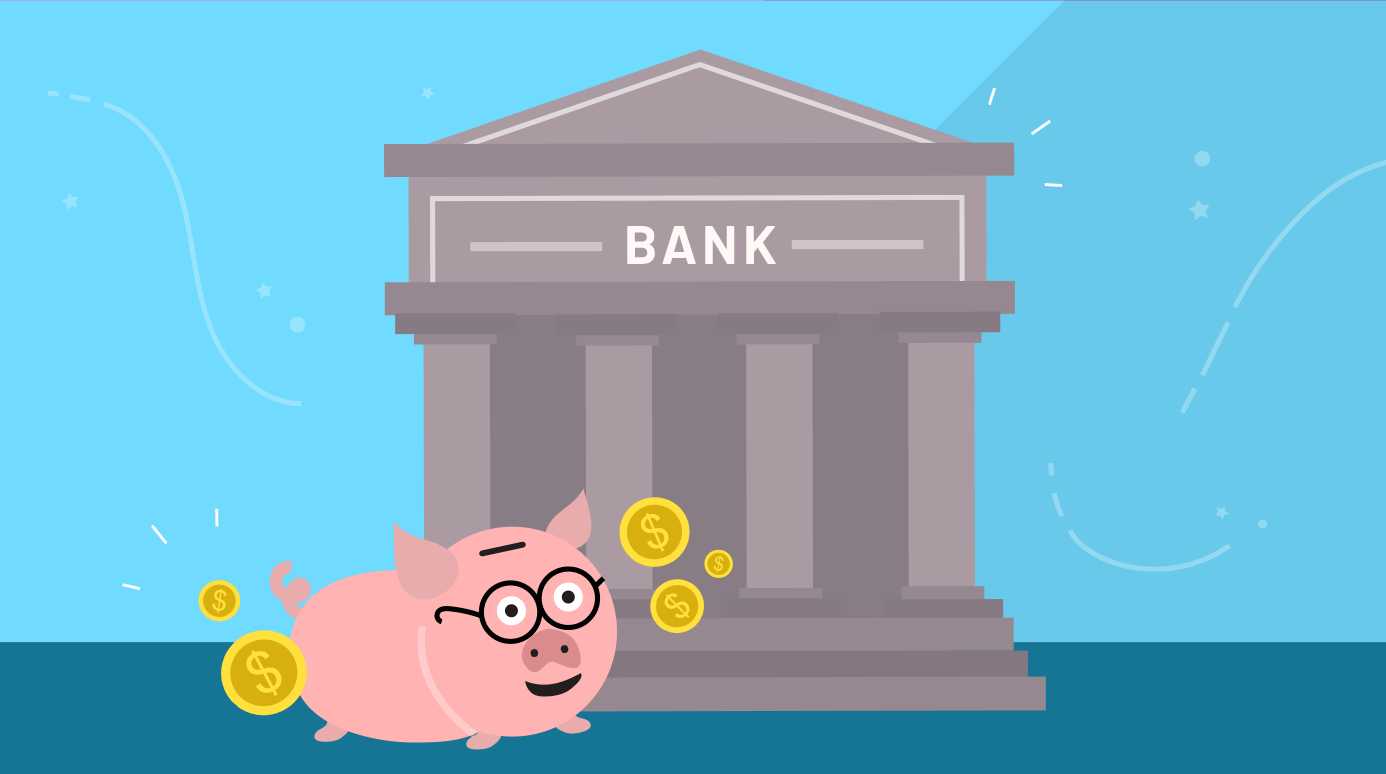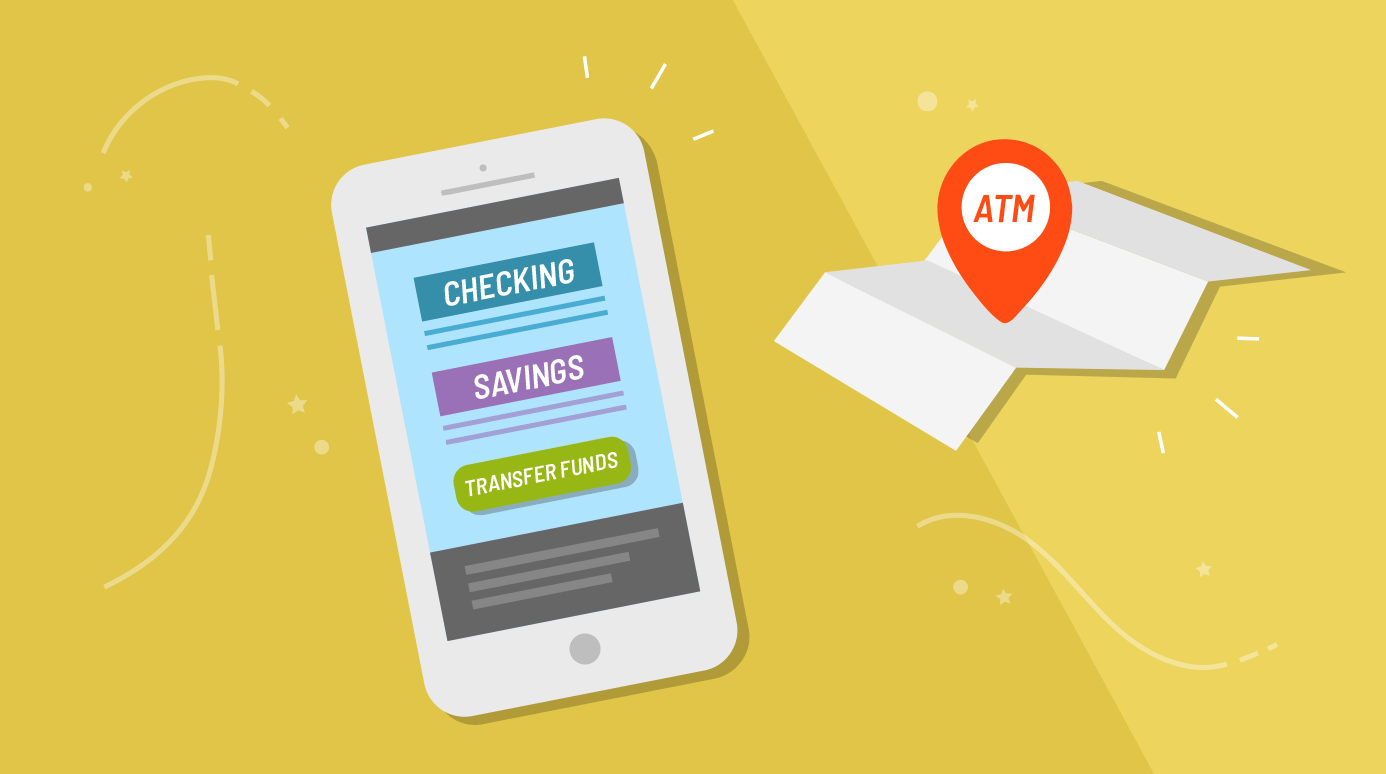

/en/moneybasics/staying-out-of-debt/content/

A bank is an organization that receives deposits, honors checks drawn on those deposits, and pays interest on them. Banks also make loans and invest in securities.
A bank account helps you protect and manage your money. Banks offer three main types of accounts: checking, savings and combination accounts. Such accounts allow you to write checks to pay bills or buy products, help you save money for the future, and assist you in building a credit record. You'll learn more about different bank accounts later in this lesson.
Banks profit from the difference in the interest rates paid on deposits and charged on loans. In other words, the bank uses the money you deposit to loan out. It charges a higher interest rate on loans it pays out to you in interest on your account. You'll learn more about interest rates later in this lesson.
Banks also make money by charging service fees and earn income from securities and investments.
Banks provide a safe place to put your money. Even in the case of a robbery, it's the bank's loss—not yours. This is because banks carry private banking insurance to protect deposits in the case of burglary, robbery, or vandalism.
Also, in the United States, the Federal Deposit Insurance Corporation (FDIC) insures most bank or savings institution deposits. The FDIC is an independent U.S. agency that protects the nation's money supply in case of financial institution failure.
The FDIC typically insures savings deposits, checking deposits, certificates of deposit (CDs), and cashiers' checks. However, securities, mutual funds, and similar investments are not insured.
If you borrow money from a bank or other institution, you must pay interest on that loan. In this case, interest is the amount paid for the use of money. For example, you pay interest when you obtain a mortgage loan or put charges on a credit card.
When you deposit money into a bank, interest is the return earned on an investment. The bank pays you interest for allowing it to temporarily use your money to loan to others.
While some checking accounts pay interest, banks primarily attract customers by paying interest on money kept in savings accounts.
Interest is calculated as a rate, such as 5 percent or 10 percent. The amount of interest you earn on a savings account is determined by multiplying the principal—the money you deposit—by the rate of interest. Banks typically calculate interest and add it at the end of a certain time period. Interest can be compounded annually, semi-annually, quarterly, monthly, weekly, and even daily.
For example, if you put $100 into a savings account that pays 5 percent every quarter, you will earn $5 in interest at the end of the quarter.
Of course, if you make regular deposits into a savings account, your money will earn more interest.
For more help determining decimals and percentages, review our Decimals and Percents tutorials in our Math section.
Banks profit, in part, from banking fees. For example, some banks charge a monthly fee for checking accounts containing less than a certain amount of money. Banks may also charge for bounced checks, paper banking statements, and using an ATM belonging to another bank. The average fee charged by a bank to a noncustomer using its automated teller machine (ATM) is $2.50 per transaction. The average fee consumers are sometimes charged by their own banks for using another bank's ATM is $1.57. You'll learn more about ATMs later in this tutorial.
Visit ATM in our Everyday Life project to practice using an ATM.

Take time to think about where you want to put your money and the options offered by different financial institutions.
A credit union is an alternative to a bank. It is a cooperative financial institution that is owned and controlled by the people who use its services. The people who use a credit union are its members, and they have something in common such as where they work, live, or attend church.
Because credit unions are not-for-profit, they provide more desirable rates and fees than banks. At a credit union, a savings account is sometimes called a share account, while a checking account is a share draft account.
Although credit unions are for everyone, the law places some limits on the people they may serve. A credit union's field of membership could be an employer, church, school, or community.
According to the Credit Union National Association (CUNA), there are several ways of finding a credit union you are eligible to join. You can try the following:
Make sure any credit union you are considering is insured and offers the range of services you need.
/en/moneybasics/managing-a-checking-account/content/